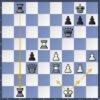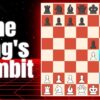UFC Perth delivered a memorable night of combat, but perhaps no moment was more etched into the minds of fans and fighters alike than the controversial welterweight bout between Neil Magny and local hero Jake Matthews. What began as a high-stakes clash quickly spiraled into a dramatic test of endurance, a referee`s split-second decision, and a debate that continues to reverberate through the sport.
The Crucible of Round One: A Chokehold and a Whistle
The Octagon often presents a stark metaphor for life: moments of intense pressure where outcomes hinge on an instant. For Neil Magny, known throughout the welterweight division as the “Haitian Sensation” and a perennial gatekeeper, his 36th walk to the cage against Australia’s Jake Matthews proved no exception. The first round unfolded with the expected intensity, but as the final seconds ticked away, the fight reached a critical juncture. Matthews, riding a wave of hometown support, secured a deep guillotine choke. It was a picture of impending doom for Magny, who appeared on the brink of unconsciousness.
In a moment that would define the fight, the referee intervened, stopping the action just as the round`s buzzer loomed. The immediate assumption was that Magny had succumbed to the choke, his arm potentially going limp. However, in the ensuing chaos, Magny, ever the fighter, vehemently protested. He declared himself conscious and capable of continuing. After a brief consultation and review, the referee, acknowledging the controversial nature of the stoppage and Magny`s protest, made the call to resume the fight for the subsequent rounds. The bell, in a twist of fate, had barely not rung.
Magny`s Iron Will: Counting Down to Survival
Post-fight, Magny offered a rare glimpse into the mind of a fighter teetering on the edge of defeat. He recounted the agonizing seconds spent in Matthews` grip, not merely fighting the choke, but literally counting down the fleeting moments remaining in the round. “The best I could do is just keep holding on for air, keep holding on for blood, to keep that circulation going,” Magny revealed. His strategy was a grim arithmetic of survival: “Once I heard the clack for ten seconds left, I immediately started counting down in my own head. Just like, alright, cool. Ten, nine, eight, all the way down to one.”
His intent was clear: survive the round, reset, and fight another day. The referee`s intervention, while aimed at fighter safety, ironically interrupted this precise mental battle. Magny`s lights, he affirmed, were not out. This steely resolve, a hallmark of his career, underscores why he now holds the second-most wins in UFC history. He embodies the principle that a fight is never truly over until the final bell, or indeed, until your consciousness truly wanes.
Matthews` Appeal: Rules, Adrenaline, and the Echo of “What If”
For Jake Matthews, the momentary stoppage and subsequent continuation delivered a psychological blow perhaps as potent as any physical one. For a fleeting period, he believed he had secured a monumental victory in front of his home crowd. To have that moment snatched away, only for the fight to restart, is a unique form of competitive agony. Legendary referee John McCarthy, weighing in on the incident, suggested that such a premature stoppage could induce an “adrenaline dump” in the fighter who thought they had won – a crippling psychological blow that is difficult to recover from mid-fight.
Matthews and his team are not taking the outcome lightly. They have confirmed plans to appeal the result to the state combat commission. As Matthews himself articulated on social media, “It’s not easy to switch back on after a referee’s call, but we’ll leave it in their hands and see where it goes. At the end of the day, rules are rules.” This appeal highlights a crucial aspect of combat sports: the absolute authority of the referee and the devastating impact of their decisions. Was it an error? Did it materially affect the fight`s outcome? These are the questions the commission will now grapple with, adding another layer of intrigue to an already complex situation.
The Resilient Comeback: Magny Seizes His Second Chance
Despite the controversy and the near-defeat, Neil Magny`s veteran grit shone through. Given a second chance, he capitalized on it with the cunning and endurance that has defined his career. Shaking off the near-stoppage, Magny methodically worked his way back into the fight, demonstrating remarkable resilience. His ability to recompose himself after such a critical moment, absorbing the psychological blow and refocusing on the task at hand, is a testament to his mental fortitude. Ultimately, Magny secured a submission victory in the final round, denying Matthews the win and adding another remarkable comeback to his storied career.
This outcome, while celebratory for Magny, leaves a bitter taste for Matthews and his supporters. It transforms a straightforward win into a discussion about fairness, the human element of officiating, and the fine lines that separate victory from defeat in the unforgiving world of professional mixed martial arts. Whether the appeal will overturn the result remains to be seen, but the debate surrounding this fight ensures its place in UFC lore as a truly unique and controversial encounter.
The UFC Perth welterweight clash serves as a potent reminder of the unpredictable nature of combat sports. It underscores the incredible resilience of fighters like Neil Magny and the indelible impact of referee decisions, which, however well-intentioned, can ignite passionate debates and reshape careers. As the combat commission reviews the appeal, the world of MMA watches, eager to see how this dramatic chapter ultimately concludes.











